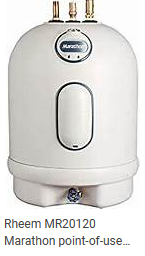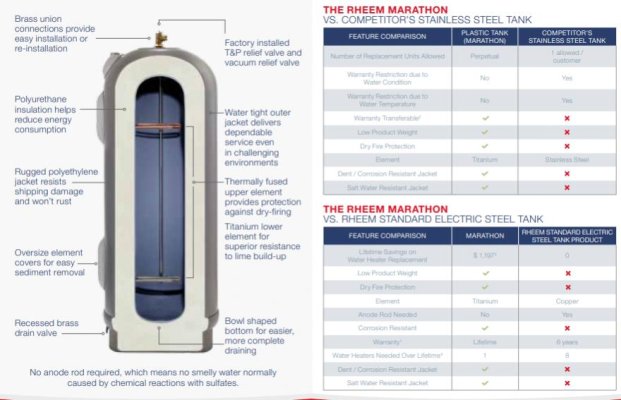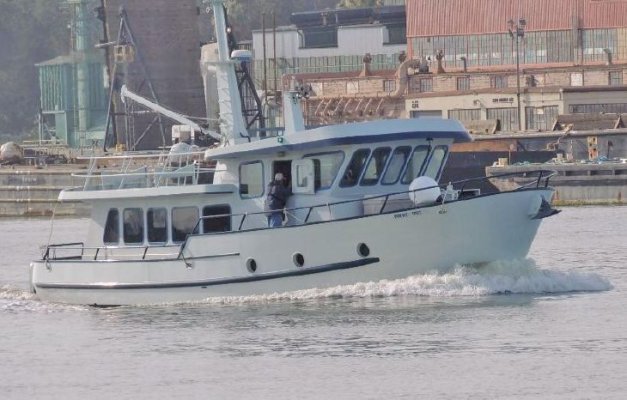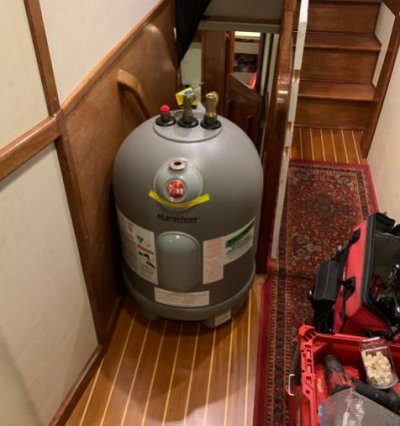Skag
Veteran Member
- Joined
- Mar 25, 2021
- Messages
- 41
- Vessel Name
- Chrysalis
- Vessel Make
- 2006 Metal Craft Marine 50' Trawler
My existing residential duty 30-gallon water heater just failed. I've been overwhelmed with the available replacement options and opinions as I surf the web and this forum....
My proposed solution is another residential duty unit that appears to be very well thought out and should never fail. It is a Rheem Marathon 20 gal water heater with a 120V 2KW heater. Has anyone else used one of these? Tank and outer shell are non-metallic and have a lifetime warranty. Thick foam insulation should keep the water hot for days. Not cheap, but neither are the "marine" water heaters that likely wouldn't last nearly as long.
For heating while cruising, I plan to put in an external exchanger (double wall plate type) mounted to create a thermosiphon using the drain and the relief valve connection.
My proposed solution is another residential duty unit that appears to be very well thought out and should never fail. It is a Rheem Marathon 20 gal water heater with a 120V 2KW heater. Has anyone else used one of these? Tank and outer shell are non-metallic and have a lifetime warranty. Thick foam insulation should keep the water hot for days. Not cheap, but neither are the "marine" water heaters that likely wouldn't last nearly as long.
For heating while cruising, I plan to put in an external exchanger (double wall plate type) mounted to create a thermosiphon using the drain and the relief valve connection.
Attachments
Last edited:




 The 20 was perfect for the space, but I failed to measure the stairway down to the stateroom where it was to be installed. Missed it by 1". I know better.... measure twice, cut once........ I felt like a complete idiot. Had a few beers and moved on. Will post when I'm done. I am still impressed with thermal insulation of these marathon non-metallic water heaters. The pic is of the "smaller" 15 gallon which cleared my stairwell by 1/2" - at 15 gallon it is still a beast at 21 3/4" dia and 35 3/4" high.
The 20 was perfect for the space, but I failed to measure the stairway down to the stateroom where it was to be installed. Missed it by 1". I know better.... measure twice, cut once........ I felt like a complete idiot. Had a few beers and moved on. Will post when I'm done. I am still impressed with thermal insulation of these marathon non-metallic water heaters. The pic is of the "smaller" 15 gallon which cleared my stairwell by 1/2" - at 15 gallon it is still a beast at 21 3/4" dia and 35 3/4" high.